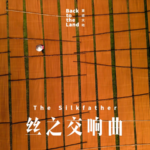In the sunbaked lanes of Kashi's Gaotai neighborhood, the rhythmic thud of clay meeting pottery wheels echoes through time. Anwar Ali, a master Uygur artisan, preserves a 600-year family legacy by transforming earthy lumps into exquisite tableware – each piece whispering stories of Silk Road heritage.
Recognized as China's national intangible cultural heritage, Uygur pottery-making survives through meticulous hand techniques passed down generations. "The clay remembers your touch," Ali explains, demonstrating how local minerals create distinctive turquoise glazes. "My grandfather's fingerprints live in every curve."
China Arab TV's recent documentary feature, hosted by Alobaidi Ameen, reveals how modern demand sustains this ancient practice. While electric kilns now supplement traditional wood firing, artisans maintain strict quality standards – a single teapot requires three days of shaping and polishing.
Cultural preservationists note growing international interest, with Kashi's workshops attracting both collectors and UNESCO researchers. For travelers exploring Xinjiang's craft trails, these pottery studios offer tangible connections to Uygur history through functional art.
Reference(s):
cgtn.com








